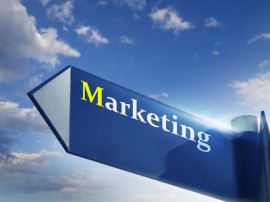
One of the most challenging aspects of business translation is communicating a marketing message in a different language. Marketing materials are difficult to translate because they often employ strong voice, idioms, humor and other creative devices, with the aim of connecting with the audience on a more emotional level (compared to other types of business documents).
A successful translation engages and speaks to the target audience just as well as the original message. Merely substituting the words in one language for their equivalent in another rarely works, and the results often end up being embarrassing and a waste of money. For instance, in an attempt to cater to tourists and the international crowd, a Paris dress shop posted the following sign: “Dresses for street walking.” Even the most innocent blunder can create an egg-on-the-face reputation for a company.
When you seek the services of a business translation company, make sure the company specializes in translating marketing materials. These experts have the business sense to understand the product or service you wish to market, as well as marketing know-how and familiarity with the nuances of the culture to which you wish to market. Translating a marketing message takes more creativity than a general business translation because the translator must come up with sayings that convey the same meaning, pitch and approach as the original text. In China, for example, the slogan “Finger-lickin’ good” actually comes across as “Eat your fingers off.” An expert marketing translator would know how to appropriately express a restaurant’s message without instructing the public to resort to cannibalism – or worse.
Cultural Nuances Matter in Marketing
A word in one culture can have a completely different meaning in another. Seemingly benign words and phrases in one culture can be blushingly offensive in another. People in the United Kingdom and the United States both speak the same language – English – but not all the words have the same meaning. In the U.K., a pencil eraser is called a “rubber.” Parents in the U.S., however, would have a fit if a company tried to sell “rubbers” to school children. When business translators work with marketing materials, they should always take into consideration the meaning a phrase or word may have within the target culture.
A company’s marketing message goes hand-in-hand with its branding efforts. Branding is the association the public makes with a company based on the use of a simple word, phrase or image. For instance, the phrase “golden arches” makes most Americans think about the popular fast food restaurant. The message a company publicizes in a marketing campaign can influence how the public perceives the organization. Therefore, it’s in a company’s best interest to get the marketing message right the first time, or risk major losses.
A straightforward translation is generally not sufficient, as there are sentences or words that need reframing to make sense. Individuals who are bilingual will tell you that jokes in one language make no sense or aren’t funny in another. Consequently, business marketing translators have to be able to replicate a client’s message while adjusting words and phrases in a manner that makes more sense within the target culture.
Successful Business Translation Services for Marketing
There is no one right way to perform a business translation, as there are several schools of thought and opinions about the matter. Some experts view a literal translation of text as being good enough, while others believe translation involves professional writing skills. On the other hand, there are those who believe it is a process of creative adaptation that shapes words and meanings.
A company’s best bet is to find a business translating service that understands its translation needs and is willing to fulfill them. Seek experts who are native speakers of your target language and who also possess great communication skills. Provide a translator with a description of your company, your marketing goals, the message you wish to communicate and a description of the product or service you wish to sell. In addition, provide the individual with information regarding your target audience.
A successful business marketing translation takes more effort than simply plugging your message into an automatic translation program. Therefore, it’s vital that you seek a marketing translation service provider who will work with you as a partner, with your success in mind.
Author bio:
Affordable Language Services (http://www.affordablelanguageservices.com/), one of the nation’s finest translation and interpreting service providers, offers interpretation and translation of over 200 languages (including American Sign Language) for your specific needs.








Hi Catherine,
It is certainly amazing how bad some marketing and advertising translations can be. The successful localisation of a message requires skill. If done on the cheap, it can be counterproductive for a business’s image; if done well, it can be key to penetrating overseas markets.
Literal translation seldom works. Also, the more detailed the brief for the translator, the better: not only the brand values and target niche but also any space constraints and accompanying visuals that the translated text will have to fit in with.
Very nicely said Oliver 🙂
Yep, machine translation has a looong way to go to be able to do marketing translations. It’s probably a good idea to become a marketing translator and, for that matter , a better translator to successfully compete with MT in the future.
Best wishes,
Roman